
14 minute read
In Your Garden rewilding
36 Gardening
In Your Garden Monthly gardening ideas and tasks by Andrew Staib, Principal Designer of Glorious Gardens
Advertisement
Rewilding your garden - 8 easy steps Firstly, what is rewilding? Rewilding is returning outdoor spaces to a natural state where nature can evolve without the intense involvement of humans. It allows original ecosystems to reassert themselves, thereby supporting damaged natural systems to heal and threatened species to recover their populations. The scale of rewilding is normally whole valleys being returned to forest or boglands being left to replenish after years of vegetative extraction. But we can rewild our little bit of the earth that we have inherited! Here are 8 ways to go about it: 1) Not so tidy Think differently about needing a tidy garden. Nature can start to shape your garden, or parts of your garden, and the need we have for straight lines and clean lawns and beds can relax a little. Leaving piles of leaves, mounds of fallen apples and crab apples and old logs to house insects can make your garden into both a factory and a hotel for life. You can leave a whole area of your garden over to nature. You may start to see tidiness as barrenness after a while, a garden stripped of natural abundance. Your neighbours, once you show them the increased amount of wildlife that your approach has yielded, may start asking you for advice. 2) Food for nature You can plant trees and shrubs that are rich in berries all year round to feed the myriad of garden visitors. From bats to bees and birds to frogs, your planting decisions will foster a smorgasbord.
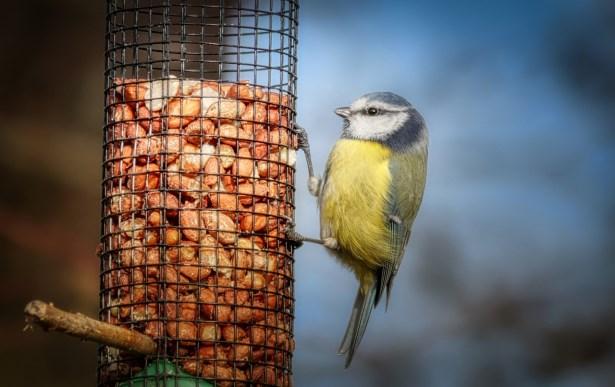
Buddleia and Lythrum salicaria for bees, Sweet Chestnuts and acorns for small mammals, plus for the birds plants such as Cotoneaster, Black Cherry, Hawthorn, Ivy and Holly will keep a good supply of nutrition going all year. For butterflies and moths, try nettles and Lilac, Lavender, Foxgloves, Angelica and Honeysuckle. 3) Homes for nature
As well as leaving piles of leaves about, and decaying logs, you can create your own insect hotels and bird feeders. (If you put your bird feeder near your rose garden you can keep the aphid population down rather than using insecticides). Having some evergreen shrubs can provide valuable protection as well as cool shade in summer.
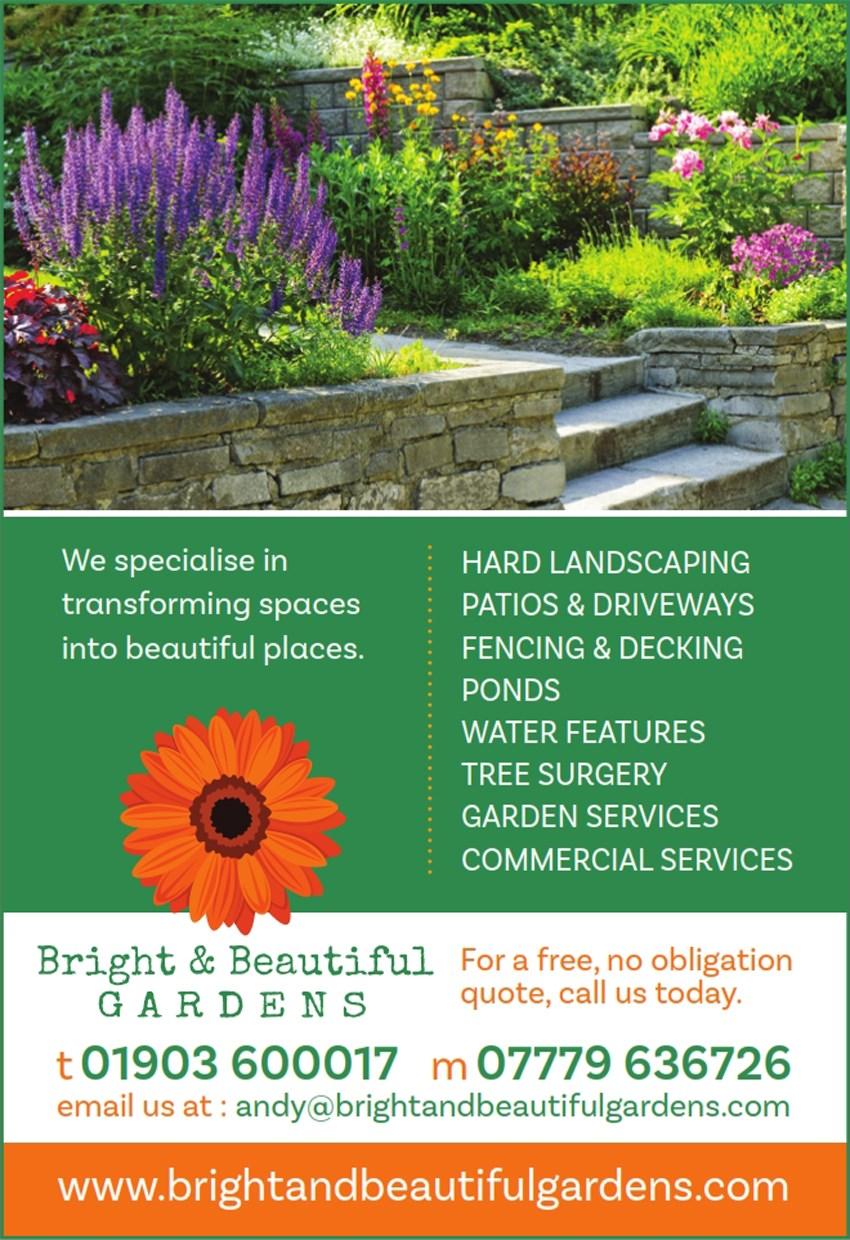
through the door
Gardening 37
You can chat with your neighbours and make sure that wildlife can move through one garden to the next. Indeed, the next time a fence needs replacing you can both think of replacing it with a mixed hedge rich in food. 4) Water Any pond, no matter how small, will give life to insects and slug eating frogs, as well as providing drinking water and a bath for birds to clean their wings. It is like creating a fertile soup as the whole of the food chain depends on it. 5) Mix and match planting

A variety of plant life will allow a variety of wildlife e.g. certain birds prefer only certain berries. Perennials that die down in the winter provide a food source and

a place for bugs to hide, flowers produce different types of nectar and a pond will allow the growth of water plants that certain insects need. You can allow certain weeds like clover, nettles and teasels a place to thrive whilst not taking over. 6) Don’t bother hoeing If you keep your veg beds well weeded there is no need to disturb the delicate ecosystem of the soil by yearly hoeing. This no-dig method involves putting a thick mulch on top of the pre-existing soil each year. You do, however, have to have a really good and plentiful supply of compost to do this. Worms and other microfungi will be happier left undisturbed (did you know that there are over one million different types of worms?!). 7) Lawn care You can give a bit or all of your lawn over to wild meadow grasses. Even leaving the lawn to grow long and plug-planting some wildflower perennials will create a healthy habitat for wildlife. Paths can be converted to bark chip paths, which eventually break down and can be spread on the beds each year or two when it is time to replenish them with new bark. 8) Become a nature detective It is amazing how once you learn the name of something, you enter into a relationship with it. The hundred common garden insects, once you know their proper name, won’t just be lumped under the pesty insect

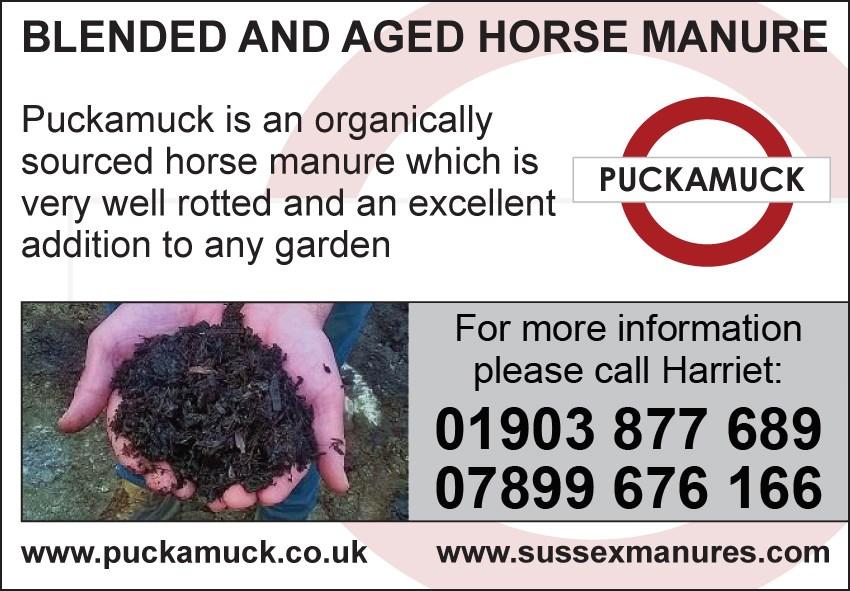
38 Gardening
category but will become the doorway to being able to find out more about them. Do you know what a pear midge is? Or a flea beetle? Or a green Capsid Bug? Or how familiar are you with the sex life of snails? You can keep a little book of sightings in your garden - much more interesting and varied than bird-watching! Rewilding your garden can be done a little here and there. It is not maintenance free but it is a relaxed attitude to nature where fertility and abundance can make up for the moss free patio that we worry so much about! Flea Beetle
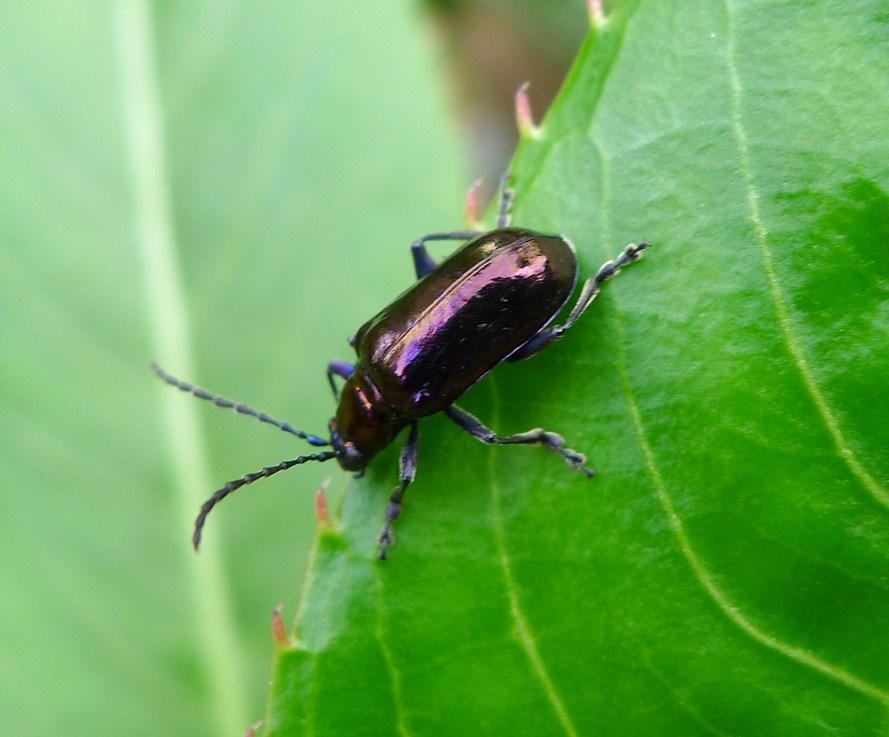
What to do this February February is a great time to explore woodland. The bare bones of the earth are at rest and the quality of the forest is still and waiting for Spring with some small delights emerging. Also the evergreens like Ivy, Yew and Holly come into their own. Try visiting Angmering Park Estate Trust, Burton and Chingford Pond, Petworth House Woods, Slindon and The Warrens.

February tasks

• Do a last tidy up and cut old perennials and ornamental grasses to ground level (as long as they are not the evergreen ornamental grasses!) • Now is the time to finish pruning your Roses and Wisterias. • Cut back Hardy shrubs like Cornus, Salix and Cotinus as well as Buddleia. • Anything that has flowered during the winter can be pruned back into shape now like Winter Jasmine and Mahonia. • Lift out and separate your Snowdrops after they have flowered. You can then replant them in different areas of the garden. • If you have a greenhouse you can start sowing leeks and onions.
through the door
Garden Services 39
There are some areas of gardening which are better left to an expert - and tree-felling and pruning definitely falls into this category, says Stephen Pickett of Ashwood Tree Surgery. Before making recommendations, a qualified tree surgeon will consider the health of the tree and what is best for it. Most tree surgeons also attempt to recycle and convert any waste into useful products. Expert care for your trees Tree Surgery Secrets

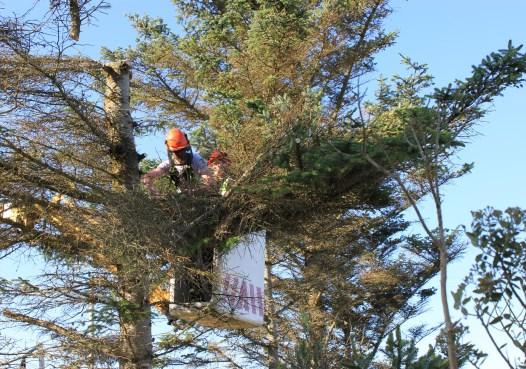
To be certain your work is carried out to the highest professional standard, you should check that your arborist is insured, NPTC qualified (National Proficiency Tests Council) and either academically or professionally trained, or both. You should also ensure that they are fully conversant with health and safety procedures.

Based locally in Ford, Stephen is fully insured and will look at jobs across West Sussex. Ashwood Tree Surgery can also help with larger landscaping projects which may require a mini digger.
Tel: 01903 723710 or 07714 165171


40 Property
Alternative energy sources By Chris Ennis FRICS
These days there can be few more important issues than climate change which, in a few short years, will challenge the lives of our children and grandchildren. We must act now to curb greenhouse gas emissions, and reduce reliance on fossil-based fuels. This is a massive issue that has dominated, and will continue to dominate the press for many years to come. There are many measures that will save energy and these will come to the fore in years to come. Insulation is probably a good point at which to start… There are still many homes where roof spaces and water storage tanks are inadequately insulated. Many properties have replacement window systems, but older installations do not possess the good thermal qualities of more modern installations. Gas/oil fired water boilers replaced / installed after 2005 are likely to be modern ‘condensing’ systems. A condensing water boiler extracts heat from the waste products of combustion. A condensing boiler is typically 90% efficient and research shows that some boilers can have a remarkable 98% efficiency. The boilers can be identified either by the white gaseous emissions through the external flue or by the condensate pipe which should discharge into a nearby drain.


Alternative sources ‘green’ of power also include wind power as can be seen in the Rampion wind farm a few miles off Worthing. The wind farm is now fully operational and includes 116 turbines with a rotor diameter of 110 metres and an overall height of 135 metres. There are (smaller!) domestic wind turbine systems available and frequently these are located on masts since wind speeds increase with height. There are a number of types of heat pump which extract energy from the ground (known as ‘ground source’) or from the air (‘air source’). They work rather like a refrigerator in reverse….a fridge takes warm material and makes it cold, but a heat pump takes cold water and makes it warm for domestic heating needs. The dedicated green householder might also consider solar powered energy with commonly seen photovoltaic panels generating electricity, or with a solar powered hot water system which might provide up to 50% of typical domestic requirements. Chris Ennis FRICS email: surveyor1@talktalk.net 01903 261 217 or www.propdoctor.co.uk
through the door


41
42 Finance
Facing Retirement Life after work By Ivan Lyons, MD Investment Solutions, Worthing
In 2019, there were more than 11.9m people aged 65 and over in the UK, which means many of them have reached retirement. As estimates say there will be another London-sized population aged 65 and over in 50 years, we look at the main preconceptions and realities about starting a new life after work. Running out of money One common idea about retirement is that it will be financially unviable A ‘Life-Shocking’ Event Finishing working can be scary for many. Reaching 65 (or more) means we will stop working and earning a salary. This could affect our sense of purpose in life. Wasting Money Pension freedoms allow many people to access their pensions by 55, possibly spending capital.


Stop Investing Some think reaching retirement age means they don’t have anything to plan for the future with their money. Financial advice can only help Financial advice is not just about money. It is about planning for your life and that of your family. Also, it is not as costly as many think and can be accessed both online and in person. An expert guide can help make sure your finances are on track and help you enjoy your retirement stress free. Investment Solutions, Grafton House, 26 Grafton Road, Worthing, BN11 1QT. Telephone: 01903 214640 email Ivan at: ilyons@graftonhouse.net or visit our website at www.investment-solutions.co.uk for more information. ‘Investment Solutions’ is the trading name of Investment Solutions Wealth Management Ltd who are authorised and regulated by the Financial Conduct Authority.


through the door
Pets 43

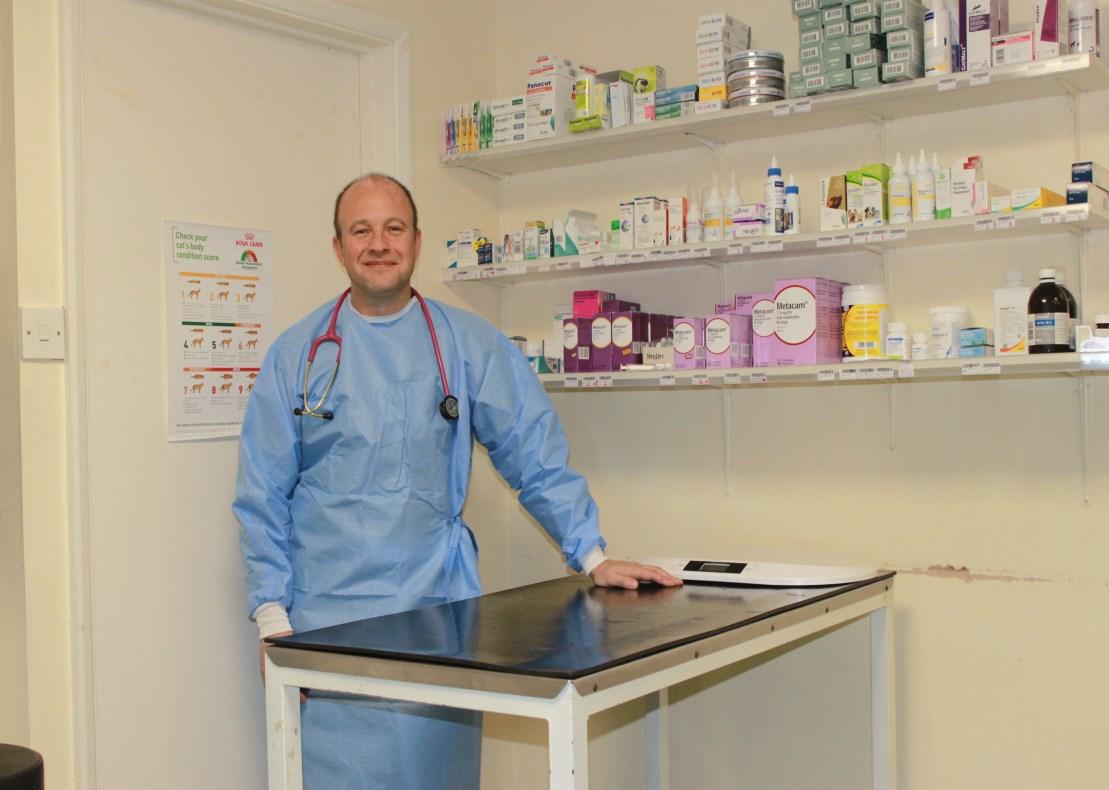
There is no doubt that dental disease is a widespread problem in the pets that we see in practice. It is one of the top three disorders according to a study by VetCompass. As with most things, being aware of a problem or the potential for a problem is the first step to resolving it. For many pet owners their pet’s mouth is usually something that they do not look in and a dental problem may not become obvious until there are other clear signs present such as bad breath, the pet eating less or dropping food. Things to think about: Toothbrushing isn’t just for humans Bad breath doesn’t have to be a problem for our pets. It is something that we can help to prevent and often successfully improve. However, the thought of trying to brush the wriggly puppy’s teeth or the not very impressed cat’s teeth is daunting and therefore often avoided. Yet we know that brushing pets’ teeth can be one of the most effective ways of preventing dental disease and it is also beneficial in getting the pet used to a regular oral examination. Diet The other aspect, and one of particular importance for rabbits, is diet. Getting the diet right can also help with dental disease and, just as importantly, will aid Paws for thought Dr Julian Hoad The importance of good dental hygiene in pets in reducing obesity which is one of the major welfare concerns in vets’ practices. Check-ups and treatment Prevention is not feasible for all owners and even when owners do all the right things, dental disease can still occur which is why it is vital that pets get regular dental check-ups. Potentially painful dental disease can only be treated if it is spotted early. It is often an unseen problem for owners - an unseen problem that could be causing significant discomfort and other potential problems. An essential part of identification and treatment of dental disease is the use of x-rays to help spot any problems that could otherwise go undetected. Using this technology your pet gets a thorough dental examination and it avoids the pet leaving the vets with a potentially painful ‘hidden’ issue. At Crossways we have the latest dental x-ray technology available to ensure nothing goes undetected. I would encourage all pet owners to see the benefits prevention, correct diet, regular dental check-ups and prompt treatment can make to the health and welfare of pets. Crossways Veterinary Group, School Hill, Storrington, 01903 743040 www.crosswaysvets.co.uk

44 Schools
Steyning Grammar School
Jack 'The Lad' Hayes visits SGS to inspire students We had a wonderful visit from Jack “the Lad” Hayes (Heart FM) who spoke to Year 10 students about daring to dream big. He described his life growing up in South London in difficult circumstances and challenged students to think about how they treat each other in school. He gave examples of famous people who did not give up and who failed numerous times before they found success. He asked the students to think about what they want to do in life and to follow their passions and their dreams. We massively enjoyed his visit; he was charming, honest, inspirational and funny. SGS Digital Makers win trophies in the LEGO league Following 3 months of hard work, SGS digital makers club are celebrating, not one but two trophies in the regional finals of the first Lego league; a global competition aimed at developing, teamwork, creativity, and innovation. Our two teams came 1st in the robot design presentation, and scored the

highest in the robot competition where teams have two and a half minutes to complete as many challenging missions as possible. They showed great application both in the run up, putting in lots of extra hours, and the competition itself, with exemplary self organisation, teamwork, and fair play. They are a credit to themselves, their families and our school. Sociology trip to London The sociology department took year 12 and 13 students to London to experience the court system at Southwark Crown Court, as part of their studies in crime and deviance, followed by a seminar as part of the sociology in action series, with feminist speaker Germaine Greer. At the court students were able to visit different cases and see how the judiciary system works, as part of studying policing and prevention in the module on crime. Listening to Germaine Greer was not only an excellent opportunity for students to hear from experts in the field of sociology, but also to ask questions and listen to her answers from a range of sociology students from around the country. This visit has started to bring what students study in textbooks more into a real-life setting and context. Luke Talbot Assistant Headteacher, www.sgs.uk.net










